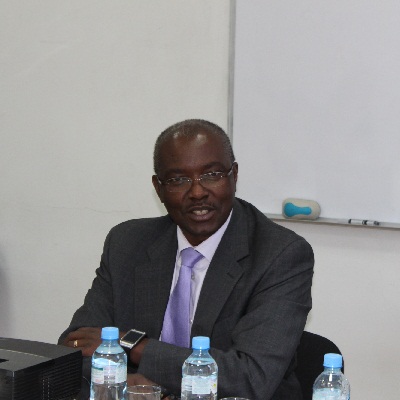Speaking about “The Economic Analysis of Road Projects,” World Bank's Regional Director for the South Caucasus Henry Kerali came to ISET, Tuesday June 23. Mr. Kerali’s presentations was designed for the participants of the Finance for Professionals’ Course and ISET community.
As Mr. Kerali explained, assessing the benefits of investments in road infrastructure is of crucial importance, especially in developing countries like Georgia. Economic analysis of roads and any other infrastructural projects involves measuring the cost and benefits of the project. Mr. Kerali highlighted some of the methods the World Bank uses in practice to conduct aforementioned cost-benefit analysis. The cost of construction and maintenance is compared to the base case – a scenario without the project in order to evaluate reduction in vehicle operational costs. For this HDM 4 model is used, which is a very useful tool to estimate operating and pavement deterioration cost.
One of the most difficult tasks associated with this tool is to evaluate and quantify project benefits such as reduced traveling time, increased intensity, etc. Another issue is evaluation of externalities. During the presentation Mr. Kerali used cost-benefit analysis data of East-West Highway Improvement Project that was launched by the World Bank in 2009 and is planned to be accomplished in upcoming 2016. As retrieved data and calculations show, despite the high interest rate of 12%, the project is profitable. Moreover, its economic internal rate of return is 29%.
Mr. Kerali also mentioned that it was his last lecture in Georgia as Regional Director. He joined the World Bank’s regional office for the South Caucasus in 2012. He has also worked in different regions of the world including Latin America, Africa, East Asia, South Asia, and Europe and Central Asia. ISET is very appreciative of him for spending his last lecture at ISET. We wish him the best in his future endeavors.











